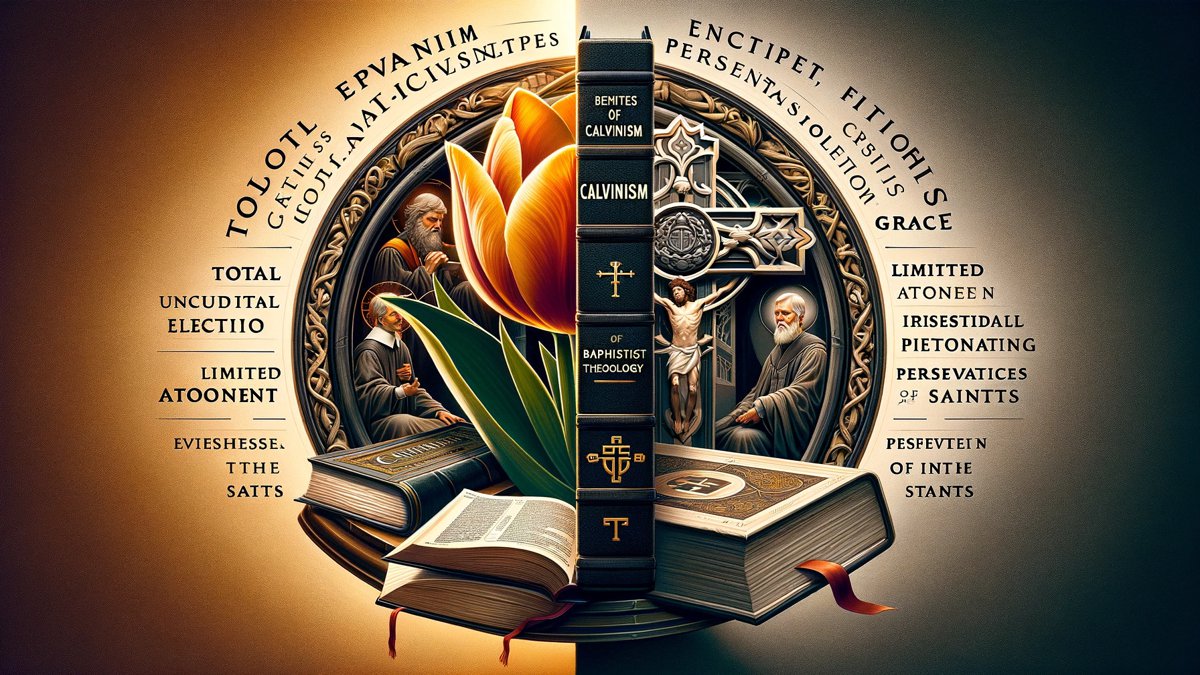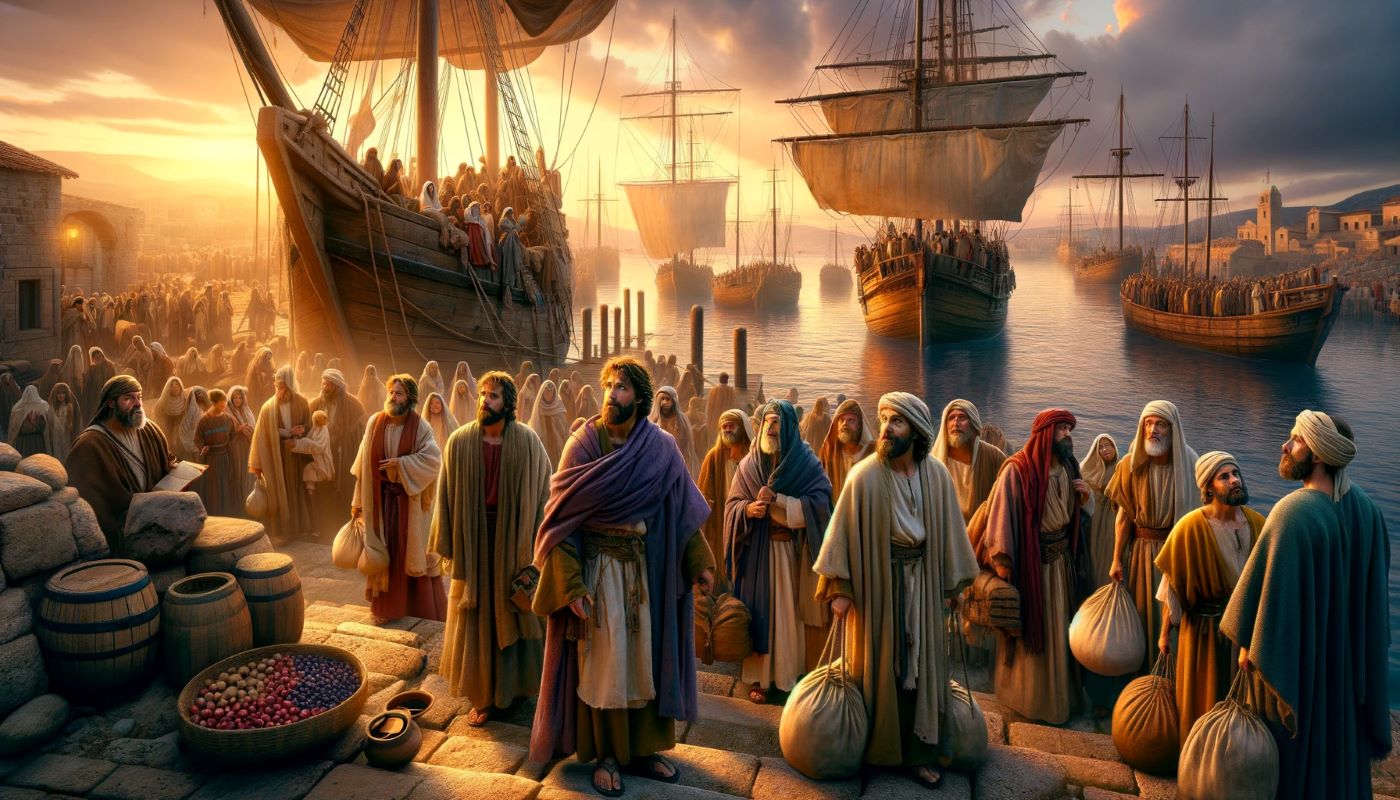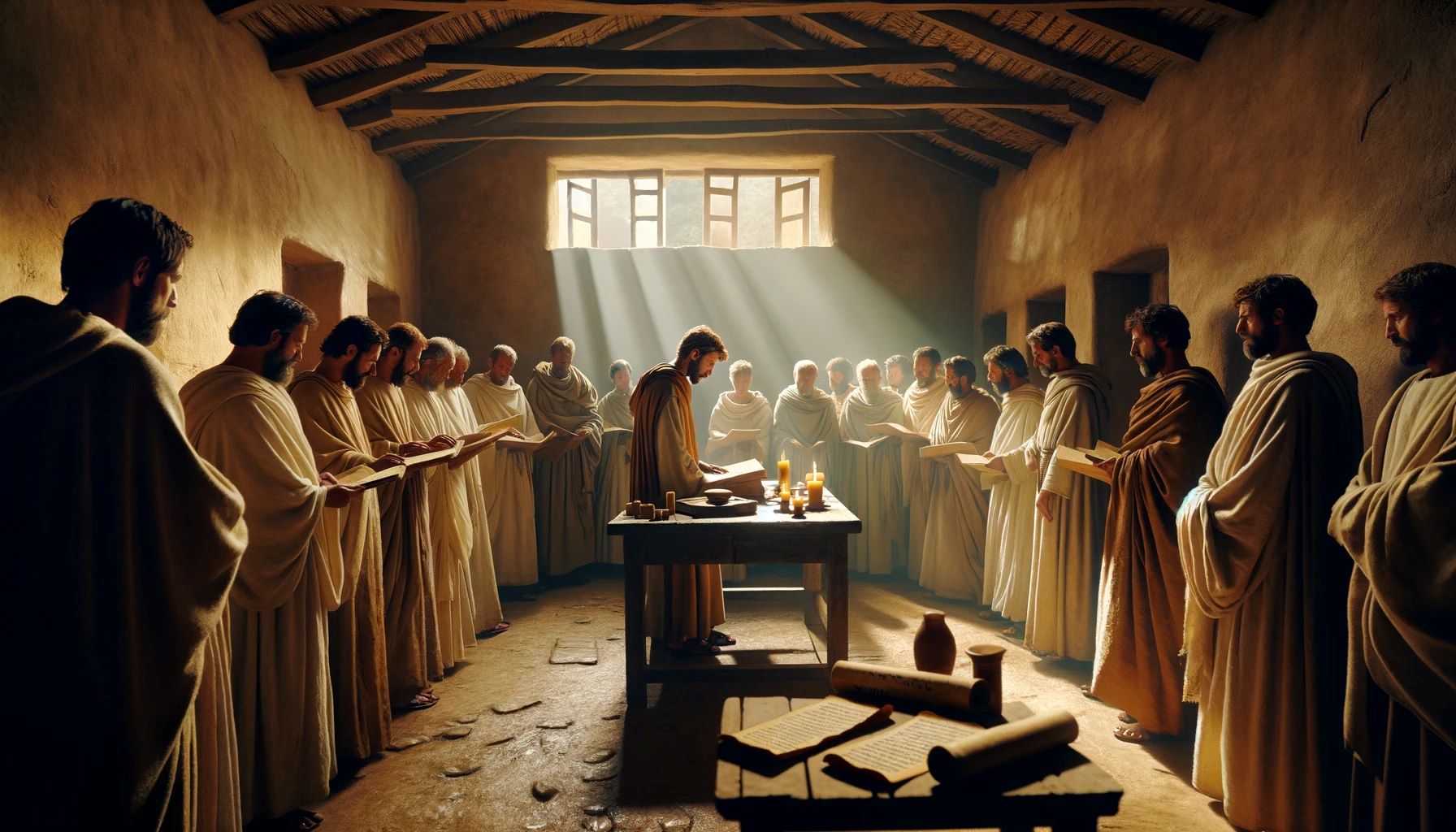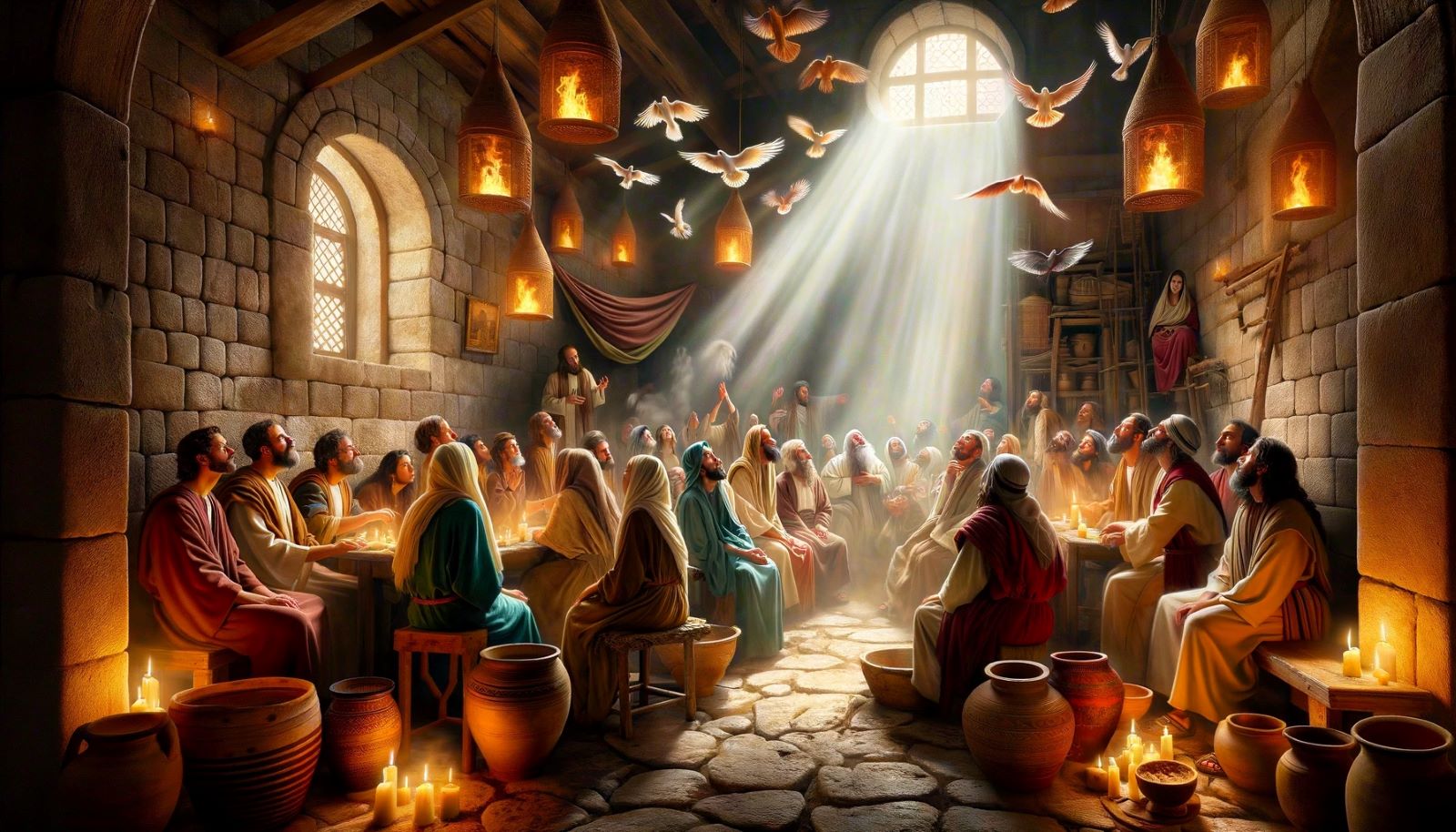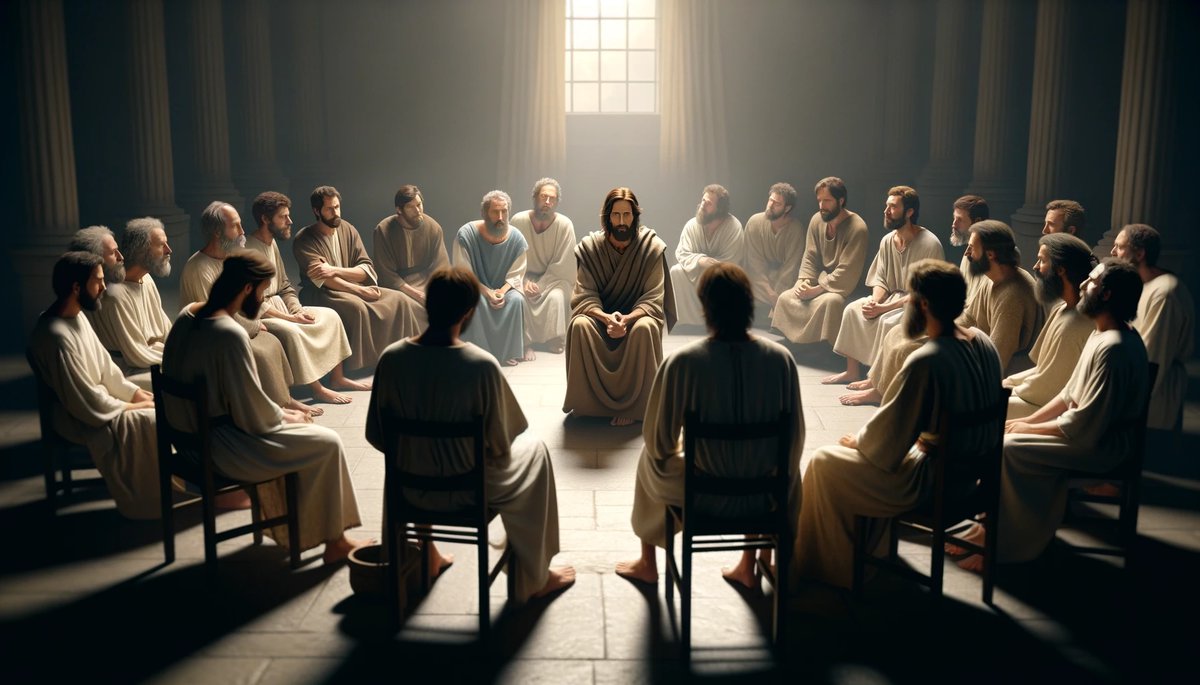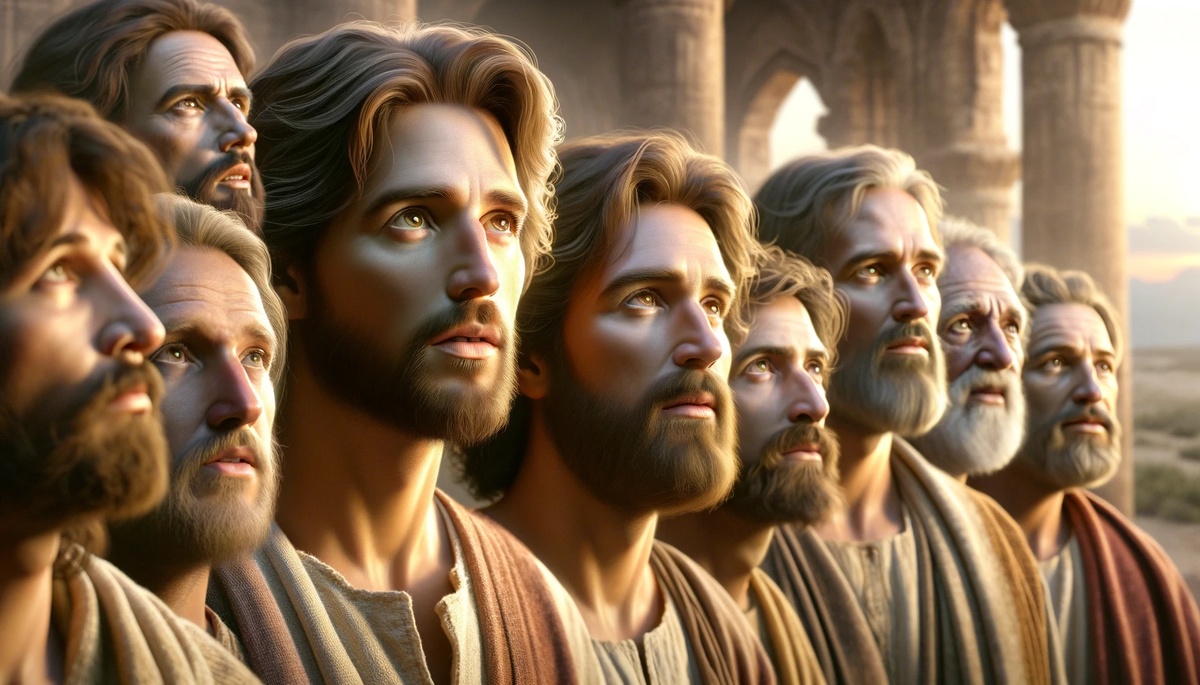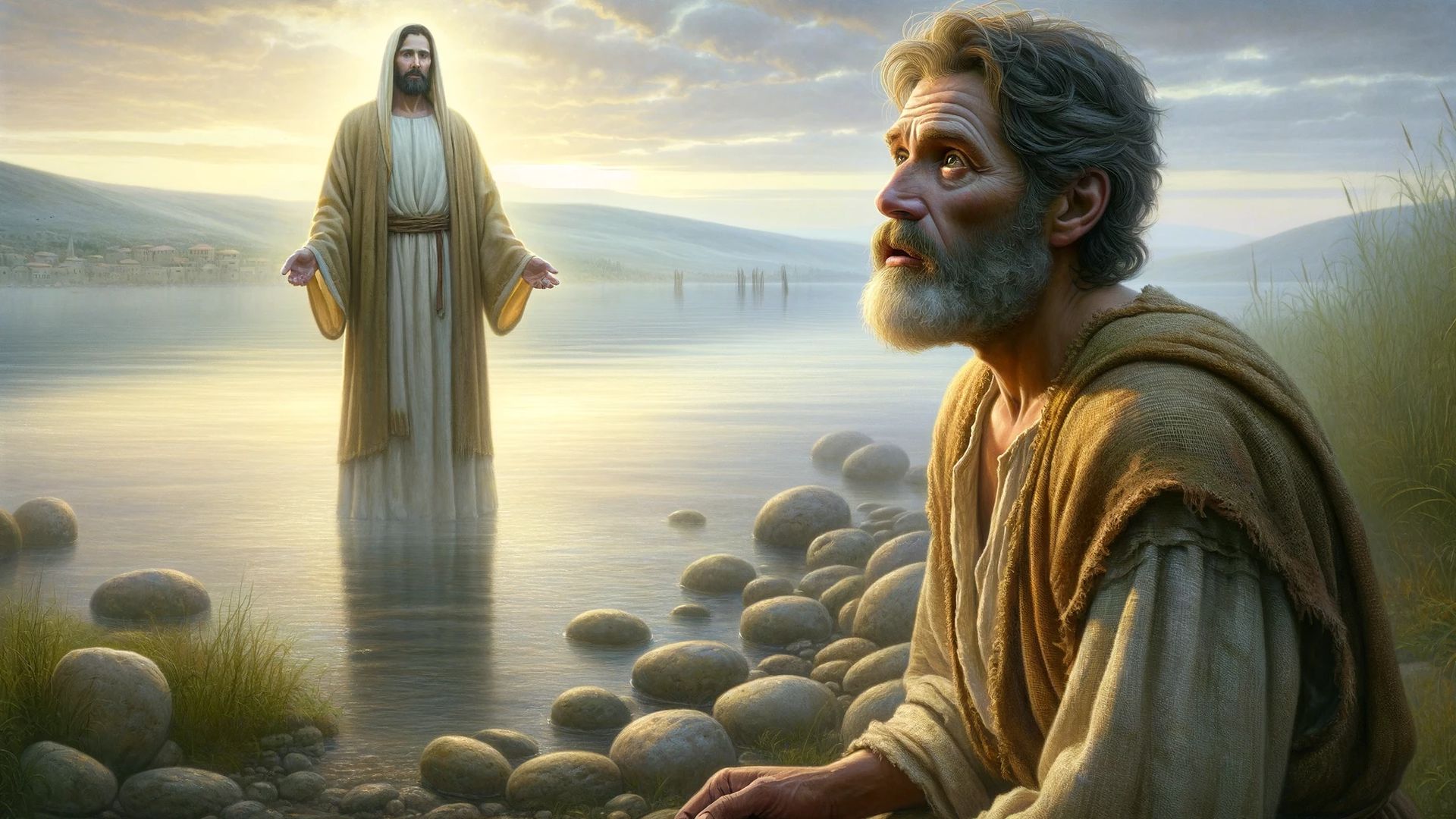Home>Christian Resources>Apostles vs. Disciples: What are the Differences?
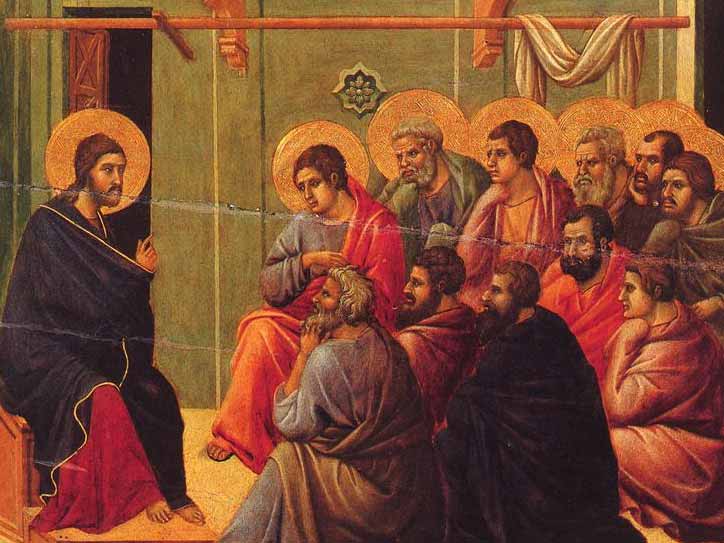
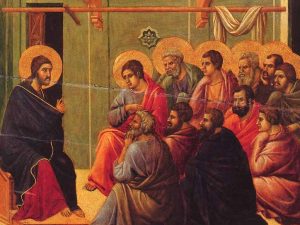
Christian Resources
Apostles vs. Disciples: What are the Differences?
Modified: January 9, 2024
Peter Smith, Editorial Director at Christian.net, combines deep insights into faith, politics, and culture to lead content creation that resonates widely. Awarded for his contributions to religious discourse, he previously headed a major organization for religious communicators, enhancing dialogue on faith's societal impacts.
Apostles vs. Disciples: Uncover the differences & similarities between apostles and a disciples. Find why you shouldn't interchange these words inattentively.
(Many of the links in this article redirect to a specific reviewed product. Your purchase of these products through affiliate links helps to generate commission for Christian.net, at no extra cost. Learn more)
During the ministry of Jesus, he wasn’t alone in teaching and doing miracles. A group of people accompanied him wherever he went. They ate with him, listened to his teaching, and experienced full-time training with the Lord Himself. Leaving behind their lives, they were committed to following Jesus, proclaiming the Word of God, and performing wonders. Undoubtedly, they never spent a dull day with the greatest teacher and influencer in the course of history. The Gospel described how vast the multitudes were that followed Jesus from different places including Galilee, Decapolis, Jerusalem, Judea, and beyond Jordan (Matthew 4:25). The context of apostles vs. disciples is not an issue during this period. These men only had one thing in common: they believed in Jesus and devoted themselves to following, imitating, and learning from him.
Jesus spoke with the power and authority that other teachers of the Law cannot contest (Mark 1:22). Jesus modeled leadership. He entrusted His ministry to men who will adhere to his teachings and declare the Good News of God’s plan for humanity. Jesus’ time on earth was bounded by his mission of salvation. He spent the last years of his life with these men to equip them with knowledge of God’s word for he knew that a day will come when he will return to the Father.
This inner circle of Jesus is both regarded as apostles and disciples. Today, the followers of Jesus still use the terms ‘apostles’ and ‘disciples’ with their biblical and spiritual discussions. Although some Christians think that these terms can be used in the same context, the word apostles and disciples are not interchangeable. Hence, apostles vs. disciples matters ascend.
Apostles vs. Disciples: False Impressions and Differences

Photo by Detroit Institute of Arts Museum
There are no clearer clarifications between the apostles vs. disciples subject than the description of the New Testament. Although these two Biblical terms are similar in some ways, they are entirely different. The only time these words can be considered as mutually correct terms is when they are both referring to the twelve major followers of Jesus during his time on earth: the Twelve Apostles or Twelve Disciples. We can call them either way. Other than this, each term has distinct definitions. The simplest phrase in deciphering apostles vs. disciples context is through understanding that all apostles are disciples but not all disciples are apostles. Let’s take a closer look at this matter on apostles vs. disciples to find out how this happened.
Disciples are anyone who follows, obeys, and lives by the teachings of Jesus Christ. They are students of the Word of God. The twelve belongs to those who spent days and nights under the direct and personal teachings of Jesus. With multitudes following Jesus, the twelve weren’t the only disciples. Yes, they were the primary disciples, but they were not the sole disciples. On the other hand, Apostles are disciples selected for a specific mission. In the New Testament, the center of their common mission is to proclaim the Gospel.
Jesus called everyone who believes in him disciples, but not necessarily to be apostles. Apostleship has a special office in advancing the Kingdom of God; not everyone is given so. In contrast, discipleship in Christianity is required. It is crucial in building the church of God.
Apostles vs. Disciples: The Appointed Apostles

Photo by Zygmunt Grocholski
The Greek word for “apostle” is apostolos or apostoloi. Its literal translation means ‘one who is sent away’ and ‘a messenger or delegate’. Its Greek meaning implies the sending of someone for a particular purpose by the one with authority. Apostles are set apart, chosen, and sent with intention of utmost importance. In Christianity, the Apostles have an exclusive ambassadorial office to speak for Christ on the world. The Lord sent them to speak for Him and the Good News of salvation.
John MacArthur, a famous Bible teacher and author of various books writes that the Book of Acts limitedly regards the twelve core circles of Jesus as the Apostles. Also, the Apostle John indicates that the apostles are the twelve (John 70-71; John 6:67). Other accounts of Mark and Matthew also refer to the twelve as the apostles. (Matthew 10:2; Mark 6:30).
The New Testament defines the apostles as those who accompanied Christ from the start of His ministry to His ascension, meaning one who witnessed the life and resurrection of Jesus. Moreover, the qualification includes the receiving of power from the Holy Spirit to perform signs and wonders in the name of Jesus which He also promised before He ascended (Acts 1:21-22; Luke 9:1-2). These powers include the power to heal sickness and cast out demons. This clarifies Mark 3:13-19 narrating Jesus’ appointment of the twelve Apostles that He might send them out to preach.
Special Apostleship
There is however a special apostolic office given to a man named Paul who never shared the public ministry of Jesus but stood witness to the grace of God. The Apostle to the Gentile, it is the unique purpose of Paul. He wasn’t part of the twelve but the twelve apostles accepted Him as someone sharing their tasks and responsibilities (2 Peter 3:15). Paul, a former persecutor of Christians, encountered Jesus through a blinding light that speaks to him on his way to Damascus. After this encounter, he lived a changed life declaring the Grace of God and His Good News. Paul was not part of the Twelve but was considered as an Apostle for those who do not belong to the tribe of Israel- the Gentiles. Because of His calling, other nations received God’s salvation.
Today, in the context of the New Testament, Apostles no longer exist, since the definition of an Apostle is someone bearing witness to the life and resurrection of Christ. Furthermore, the foundation of the Church is already complete according to Ephesians 2:20 with Jesus being the chief cornerstone, built on the foundation of the apostles and prophets. The mission of the apostles is complete, yet is still active today through the acts of missionaries (Ephesians 4:11).
The Calling of the Apostles
Upon knowing that Apostles are a set of disciples sent to be messengers for the Gospel, we can only imagine how consecrated the apostles were. Perhaps, we think that the apostles were some majestic chosen people who were totally different from our normal individual sinful nature. This, however, is a myth. Some of the Apostles were fishermen (Peter, Andrew, James and John, the sons of Zebedee) and another a tax collector (Matthew). They weren’t wealthy businessmen nor do they come from an influential family. The apostles were completely ordinary. Yet, the Lord selected and appointed them to build the foundation of the Church.
The Apostles were common men called to deliver the Gospel, and Jesus was the one who chose them to help in advancing God’s kingdom (John 15:16). Among the twelve disciples, only one faced a natural death, the Apostle John. The other eleven apostles were tortured and killed in the most ruthless and shameful manner for the sake of teaching God’s Word. The term apostle comes from the word Apostolos, which indicates an ambassador or a representative declaring the news of salvation to all who hear.
A Quick Glimpse on the Twelve Apostles
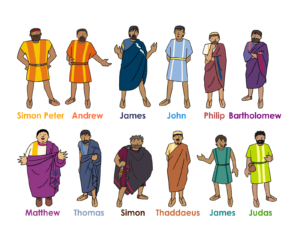
Simon – also called Peter which means rock; the leader of the twelve
Andrew – brother of Peter; the first disciple called by Jesus
James – son of Zebedee; also named by Jesus together with John as “Sons of Thunder”; zealous and passionate
John – brother of James; the apostle of love
Philip – seemingly in charged with administrative tasks; organized but pessimistic
Bartholomew or Nathanael – the closest friend of Philip; Nathanael means “God has given”
Thomas – the pessimist; nicknamed as doubting Thomas
Matthew – the tax collector; publican; also called Levi the son of Alphaeus
James – son of Alphaeus; the lesser or the younger
Thaddeus or Jude – son of James; also called Trinomious meaning “a man with three names”
Simon – called the zealot; a Canaanite and a fanatical Nationalist
Judas Iscariot – the treasurer and the traitor
The Tasks of the Apostles
The Twelve Apostles play a fundamental role in Christian leadership. The Lord entrusted them with the crucial assignment of establishing The Church. The Apostles with Peter leading them founded the first and primary Christian church. The early Christian church devoted themselves to the apostles’ teachings and fellowship. Aside from establishing the church, the Apostles edified it. The pivotal Christian lessons today have been taught by these Apostles who founded the body of Christ.
The twelve Apostles were the first models for other disciples, not just by their words and miracles but also by their lives. They modeled the genuine pursuit of holiness, and their lives became the emblem of true Christianity, far from the examples of the Sadducees and Pharisees. Moreover, setting the standards of new leadership, they modeled humility, gentleness, and unity. Following the examples of Jesus, they performed signs and wonders, preached the Gospel, devoted themselves to prayer, and lived a life worthy of their calling.
Was their task simple? No. Was it manageable? Yes, by the grace of God. Remember, they were not as wise as the scribes. They did not have the expertise like the Pharisees. They belonged to the low-class category of the Galileans. But through the Holy Spirit, Jesus gave them the same authority and power he had. When Jesus speaks, the crowd listens (Matthew 7:29).
Apostles vs. Disciples: Describing a True Disciple
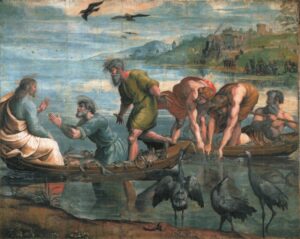
Disciples, in the Greek word “mathetes” (Luke 9:1), means “learners”. In Latin, it means “pupils”. Basically, disciples are people who learn from someone they consider a mentor or teacher. The term disciple is widely popular during Jesus’ ministry and the early Christian church. Disciples follow Jesus and adhere to His teachings. Although the most notable disciples of Jesus are the twelve, they weren’t the only disciples. Jesus had also appointed and sent out 72 disciples ahead of Him (Luke 10). As they returned, they rejoiced greatly for under the name of Jesus, the 72 saw great results of the ministry. However, the greatest thing each disciple was assured of was having their names written in Heaven.
It denotes that the disciples are not only hearers of teachings; they were also learners who spread Christ’s teachings. Disciples are not passive individuals. The instructions of Jesus are active, invigorating, and life-changing. Being a disciple means walking in God’s truth with faith. In Jewish culture, the only lesson needed was the knowledge of their customs, laws, and traditions. During this period, there was no systematic form of education, so Jews dedicated their time to learning all Jewish practices. Being able to choose their, teacher, many chose to follow Jesus, an act of devotion, and faithfulness to His teachings. Today, our actions display our true pursuit of the Word of God.
The Tasks of a Disciple
In view of the apostle vs. disciple matter, we’ve seen the special office appointed for the apostles. Unlike the apostles, however, disciples of Jesus do not have the special assignment of establishing the Church. But this does not make a disciple completely free from any responsibility. To completely understand how someone can be a disciple of Jesus there are two personal tasks they need to do. They also need to answer the question “what are the accountabilities of a disciple’s personal and spiritual growth?
They Must Follow Christ
The first step to becoming a disciple of Jesus is a decision to follow Him. When Jesus called the first disciples, He did not make a background check on them. He also did not give them a test to see if they were ready to be disciples. All he did was call them to follow Him. It is a simple instruction, right? And once Jesus called them, they immediately left their nets and followed Him. The act of laying down one’s net means laying down one’s life for Christ. It means surrendering everything to God.
Matthew 4:19
“Come, follow me,” Jesus said, “and I will make you fishers of men.”
The 12 disciples who followed Jesus physically made a great sacrifice. Instead of making money to earn a living, the followed Jesus and depended on God to care for them. The decision to follow Jesus today will require us to have the same faith as that of the 12 disciples. Though we don’t physically follow him, we should follow his actions and word, live by His truth.

They Must Learn His Word
The Apostles knew in the Book of Acts that the primary concern for the world should always be the word of God. Many wanted to hear the teachings of Jesu, so they devoted themselves to learning from him every day (Luke 5:1). In the present day, there are three ways of learning His Word. First, it is by hearing the Word of God through priests and pastors, or missionaries and Christian speakers. These modern-day teachers of God’s word answer our question of how to follow Jesus. They indicate a life of obedience to the Word of God (1 Corinthians 11:1). This is the ultimate testimony of being Christ’s disciple- a life being transformed.
Acts 6:2
“Then the twelve summoned the multitude of the disciples and said, ‘It is not desirable that we should leave the Word of God and serve tables.’”
Second, we learn His truth by reading His Word. The Word of God is living and powerful, and sharper than any two-edged sword, piercing even to the division of soul and spirit, and joints and marrow (Hebrews 4:12). There is beauty in learning the Word by personally delving into it. After all, the Bible commanded us to meditate on God’s word that we may observe to do according to all written in it (Joshua 1:8). It is not possible for a student to follow and learn from God without reading the Bible where His teachings are written.
Lastly, students of God’s word shall experience life with other disciples where they can practice Jesus’ teachings. When Jesus called his disciples, they needed to live and be friends with people they have never met. Imagine. James, who is so passionate, has to deal with pessimists Thomas and Philip. Simon, on the other hand, who is a fanatical nationalist, has to spend time with the tax collector, Matthew. It wasn’t a perfect combination for the disciples but it wasn’t the goal of Christ. He does not choose the flawless set of people so that it will be easy for everyone to handle each other.
The modern-day churches call this as fellowship following the examples of the early Christian church (Acts 2:42). Every disciple needs a family where he or she can grow, learn, and experience a life of worship, relationship, and fellowship. It is difficult or rather unfeasible to follow Jesus alone. It takes another to help us.
Called and Chosen
Jesus called every believer to be a disciple. Yet, he did not choose every disciple to be an apostle. The Lord called and chose His people for His great purpose. The first step in realizing this purpose is by acknowledging the Lordship of Jesus who is worthy of our obedience and submission. This is what the first disciples and apostles did. We have the best models to follow. If you desire to follow Jesus, it takes a yes to His commandment, His demands, and His Word. Nonetheless, it also implies saying yes to His salvation, greater plans, and provisions. The journey of the apostles and the early disciples showed us the faulty nature of our being and the power of God to transform us to be of great testimony to others.
The Apostles vs. disciples subjects aren’t really the issue when it comes to our faith journey with Christ but it is essential that we understand how these two terms are relatively different. Let us acknowledge the matter of apostles vs. disciples as simply uncovering similarities and differences for learning purposes. Not another is better than the other as God designed everyone with a specific calling.
